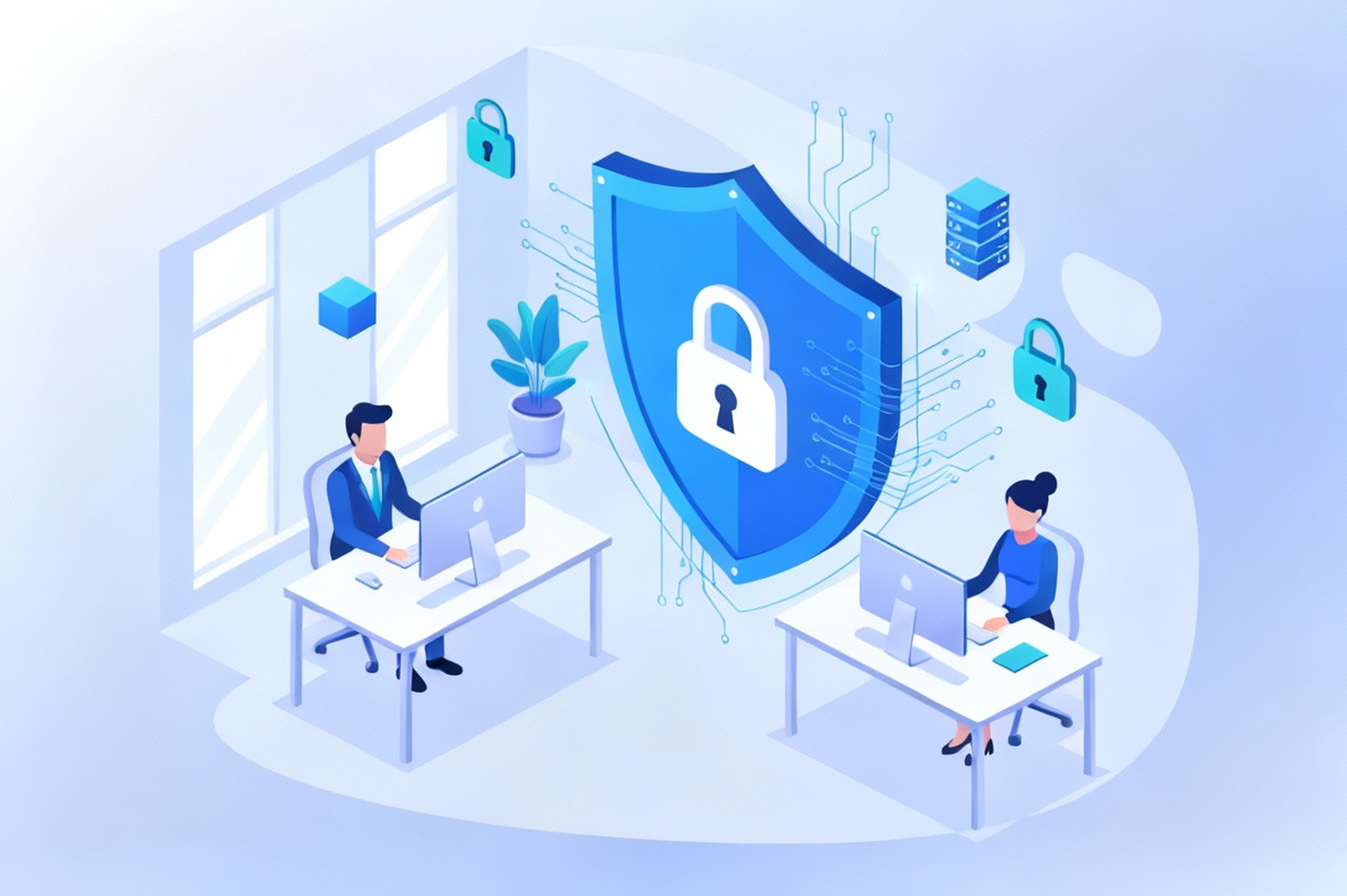Cybersecurity: Will Your Company Be the Next One Hacked?

An innocent-looking email. One click. Suddenly, everything stops — servers, files, customer portals. What follows is chaos, stress, and potential data loss. This scenario doesn’t just affect large corporations. More and more SMEs in Belgium and the Netherlands are falling victim to cyberattacks.
Why? Because many think: ‘We’re too small to be interesting.’ But that’s exactly what hackers want. Less security means easier access. And that makes smaller companies a preferred target.
In this article, you’ll learn what hackers look for, how they get in, and — most importantly — how to prevent your business from becoming the next victim.
Why Do Companies Get Hacked?
Small businesses are popular among hackers. Not because they hold massive data sets, but because they’re often poorly secured. According to recent statistics, nearly one in two businesses is attacked every year. The reasons are simple:
- No internal IT team
- Outdated software
- Untrained employees
- Lack of continuous monitoring
Hackers use automated tools to scan thousands of companies simultaneously. One vulnerability is all it takes to break in.
What Are the Most Common Cyberattacks?
Cybercriminals use various methods to gain access to company data. The five most common types are:
1. Phishing – Emails that appear to come from a trusted source but contain malware.
2. Ransomware – Files are encrypted, and hackers demand payment to unlock them.
3. Credential stuffing – Stolen passwords from other websites are reused.
4. Social engineering – Employees are tricked into revealing sensitive information.
5. Unsecured Wi‑Fi – Hackers intercept data through weak wireless connections.
Phishing remains the number one cause of hacks among SMEs.
What Is the Weakest Link in Cybersecurity?
Humans remain the biggest risk factor. Even the best software can’t fully prevent human mistakes. Employees sometimes click the wrong links, use weak passwords, or accidentally share confidential information.
That’s why awareness training is essential. At IT bugsolutions, we teach teams how to recognize phishing attempts and handle data safely. Cybersecurity doesn’t start with technology — it starts with behavior.
How Can You Prevent a Hack?
Preventing a cyberattack doesn’t require expensive tools — it requires consistent IT policies. Follow these basic principles:
1. Use strong passwords and enable multi-factor authentication (MFA).
2. Update software regularly to patch vulnerabilities.
3. Create daily backups stored in a separate, secure location.
4. Train employees to spot suspicious emails.
5. Use professional antivirus software (free versions don’t offer sufficient protection).
6. Monitor your network continuously — 24/7 supervision detects threats early.
The best way to prevent a hack is by keeping software up to date and training your staff regularly.
What Are the Consequences of a Hack?
A hack costs more than just money. Consider:
- Downtime: lost productivity and customers left waiting.
- Reputational damage: loss of customer trust.
- Fines: GDPR violations can cost thousands of euros.
- Stress: days or even weeks of recovery work.
At IT bugsolutions, we see many companies take action only after an attack. But proactive protection is far cheaper — and prevents disasters before they happen.
How IT bugsolutions Protects Your Business
At IT bugsolutions, we believe in proactive cybersecurity. Our approach combines technology, monitoring, and human expertise. We provide:
- 24/7 network monitoring
- Automated updates and patch management
- Firewall and antivirus protection
- Security audits and penetration testing
- Employee training to prevent phishing
Through continuous monitoring and automated alerts, we detect threats early — before they cause harm.
Conclusion: Don’t Wait Until It’s Too Late
The question isn’t whether your company will be attacked — but when. Cybercriminals never sleep, but your protection doesn’t have to either.
Invest today in a secure, proactive IT environment with IT bugsolutions. Schedule a free cybersecurity audit and discover how well your business is really protected.
FAQ – Common Questions About Cybersecurity and Hacks
• Are small businesses really targeted by hackers?
Yes. Over 70% of all cyberattacks target SMEs, mainly because they believe they’re not at risk.
• What is phishing?
Phishing is an online scam where criminals send fake emails to steal sensitive information.
• What should I do if my company gets hacked?
Immediately disconnect affected devices, contact your IT partner, and restore your backups.
• Is antivirus software enough to protect me?
No. Antivirus software is just one part of cybersecurity. Monitoring, updates, and human awareness are equally important.
• What does IT bugsolutions recommend for optimal protection?
A combination of continuous monitoring, automated updates, strong passwords, and regular staff training.
Gepubliceerd op: Oct 30, 2025
